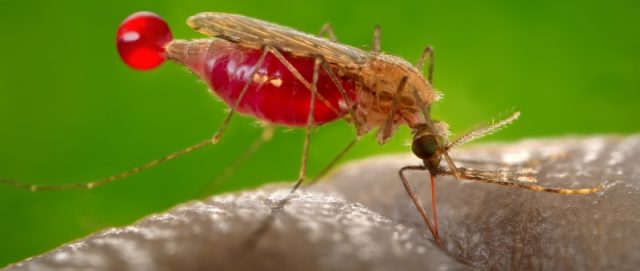…Recent heavy rains have resulted in malaria outbreaks in Baringo and Turkana counties, while Marsabit county contends with the spread of measles
TUE NOV 26 2024-theGBJournal|The climate emergency continues to bear consequences for people’s health, and the hardest hit places are often those least responsible for the emissions that fuel it.
In Kenya, extreme climate conditions have led to three concurrent disease outbreaks—malaria in Baringo and Turkana counties, which have experienced heavy rains, and measles in Marsabit county.
Residents of these arid or semi-arid regions often struggle to access health care due to the long distances to reach health centers, the high cost of transport, and the difficult terrain. All three regions also suffer from serious shortages of qualified health workers. This situation has prompted Doctors Without Borders/Médecins Sans Frontières (MSF) to launch three simultaneous responses in Kenya.
Baringo, Rift Valley region
Parts of Baringo county have experienced a prolonged drought, followed by heavy rains. The standing water left by the rains has created a breeding ground for Anopheles mosquitoes, which spread malaria. As a result, there has been a spike in malaria cases since August and an increase in hospital admissions of people with complicated malaria, which can be life-threatening.
Local health services have struggled to cope with the outbreak due to shortages of health staff, a lack of diagnostic tests and treatment for malaria, and the geographical challenges presented by the area, which is mountainous and has few accessible roads.
“Access to health care in this area is quite difficult, with some people having no health facilities within 40 kilometers [25 miles],” said MSF country director Dr. Edi Atte. “This means that people delay seeking care until their condition becomes critical.”
In addition, no malaria prevention activities had been carried out in the area for five years, exacerbating the health emergency. “The majority of people with severe malaria came from Silale ward, an area which has had no malaria prevention activities since 2019,” Dr. Atte added. “MSF treated 3,035 people for malaria.”
“Almost every household has a malaria case,” said Evalyn Lochomo, a mother of six from Nasorot village in Baringo county. “Due to the distance to the hospital and the terrain, we have lost many children along this road, in this forest, where they had to leave [their bodies] in the bushes due to malaria and diarrhea. The main reasons [for the deaths] are the distance to hospital and people’s inability to afford transport.”
To prevent these unnecessary deaths, MSF teams are working with Baringo’s Ministry of Health to run mobile clinics in the region, taking medical care closer to people living in remote communities. MSF trained 26 community health promoters to test people within their local community for malaria and refer them for treatment if necessary.
To help prevent the spread of malaria, MSF teams have also distributed 8,800 mosquito nets, as well as water purifying tablets, soap, and jerry cans to stave off waterborne diseases and promote good hygiene practices.
Evalyn’s six children have all received malaria treatment from MSF’s mobile clinic team, who also provided the family with bed nets to protect them from mosquito bites at night. “All my children have had malaria,” she said. “I am grateful that they all received treatment in the mobile clinics and that we now have mosquito nets.”
Turkana West, northern Kenya
At the malaria peak in September, 8 out of 10 people in Turkana West tested positive for the disease. MSF launched a response in 16 villages in the Kalobeyei area, treating 1,909 children and adults for malaria, as well as providing 2,992 outpatient consultations and extra health staff. MSF sent additional staff to the Ngiitakito dispensary in Lodwar to improve infection prevention and control measures for better management of malaria cases.
The MSF team in Turkana West also provided mosquito nets to households that did not have them. “This area had malaria prevention interventions in the recent past,” said MSF emergency coordinator Lili-Marie Wangari. “We are helping to identify households that were not reached during the last net distribution carried out by health authorities.”
As most malaria patients are between 5 and 15 years old, the team also installed 350 mosquito nets in a local boarding school.
Marsabit, northern Kenya
Following a measles outbreak in August in Illeret, Marsabit county, an MSF team worked with the Ministry of Health to carry out a mass vaccinations targeting children from 9 months to 15 years old. Working with 12 community health promoters, they vaccinated a total of 9,874 children to protected them against the disease.
During the campaign, MSF staff also identified children with complicated forms of measles, provided them with treatment, and referred patients in need of specialized care to health facilities.
In Illeret, 12 community health promoters who live within these communities have been instrumental in the mobilization of the community to expand its reach. “Beyond access to health facilities, mechanisms for reporting public health events within these communities by community members and volunteers are crucial for early detection of diseases and linkage to facilities,” said Wangari.
During the three emergency responses, MSF teams treated 4,944 patients for malaria and provided other outpatient medical consultations to more than 8,000 people. More than 9,800 9, children between 9 months to 15 years old were vaccinated for measles and 26 new measles cases were identified and managed.
Over 1,000 children and 386 pregnant and breastfeeding women were screened for malnutrition, and 249 children were found to have moderate acute malnutrition in addition to 158 with acute malnutrition. The response involved the work of 38 community health promoters and volunteers to support community-level disease detection.
X-@theGBJournal|Facebook-the Government and Business Journal|email:gbj@govbusinessjournal.com|govandbusinessj@gmail.com










